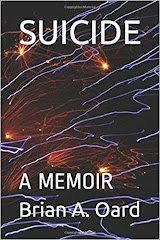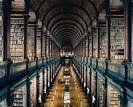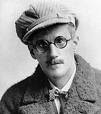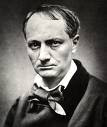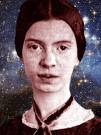So you want to read the canon of classic 'Western' literature. Good for you. Reading the canon, voluntarily immersing oneself in its excellence, is an act almost noble in a time and place that bestows the mantle of genius upon Spielberg, Swift and Jobs (Sounds like a really bad law firm, doesn't it? Check out their ad in the yellow pages under S for 'shysters' (then check out the etymology of 'shyster')). But the canon is an enormous, daunting thing, too huge (cue Bernie Sanders: "YUUUUUUGE!") for one lifetime. Even the seemingly exhaustive lists in the back of Harold Bloom's The Western Canon (those too-famous lists that Bloom compiled hurriedly off his hyperliterate head's top and has since wearily disowned) aren't quite exhaustive enough, as they omit some obviously canonical writers (Ginsberg, Burroughs, Kerouac) and were too early to capture Sebald, Bolano and the great late phase of Philip Roth. A reader beginning her or his exploration of the canon requires something more graspable, more human-sized: a list of, say, about 30 absolutely essential books that will both provide a basic sense of the shape of the whole canon and build a solid foundation for future reading. Here are my suggestions for the cinderblocks in that foundation. You, of course, can and will begin reading anywhere. This is where I would begin.
Homer, The Iliad. Western literature begins in the middle of a war story. Gorier than a Schwarzenegger flick and as sublime as the greatest Rembrandts, the blind bard's warsong begins, as Philip Roth has said, with an argument over a girl, and it doesn't end until we've seen the savagery from both sides and floated godlike above it all on the wings of Homer's song. This shining chant of blood and death, of peace and grief, echoes down the centuries like the siren song of war that still holds us enthralled. The Iliad is the first great statement of that Joycean nightmare from which we have still not awakened.
Homer, The Odyssey. All wars will end, eventually. Even America's current, Homerically murderous, neo-Alexandrian adventures will end, eventually (although the Iraq and Afghan wars have already lasted longer than the Trojan one). And after the war comes the long homecoming. If the Iliad is the foundational bright and shining Apollonian tragedy of European literature, the Odyssey is all Dionysus, a dark chthonic poem of horror and enchantment from the witchy depths of the pagan imagination. In its pages lie the seeds of multiple genres: romance, fantasy, horror, the picaresque, even the 20th-century avant-garde novel by way of Joyce's Ulysses, the Rosetta Stone of Modernism.
Aristophanes, The Complete Plays. Here is the birth of Western comedy. Aristophanes is outrageous, bawdy, vulgar, rude, crude, lewd, and his characters are often royally screwed. The grandfather of all social satirists, the godfather of all comic novelists, Aristophanes revels and rails and ribaldly delights in the big bag of foibles we call the human race. Begin with Lysistrata, his ever-relevant antiwar comedy, and read your way outward. My favorites are Clouds, Wasps and Birds.
Sophocles, The Complete Plays. Comedy and tragedy were intimately linked in the Greek theater. Every tragic trilogy was epilogued with an outrageously comic, phallic, scatological satyr play (only one of which, Euripides' Cyclops, has survived the censorship of the intervening centuries). One might get the true flavor of Greek performance by reading Sophocles' Oedipus trilogy and then a play by Aristophanes (Philip Roth comically imitates this ancient form in his trilogy and satirical epilogue, Zuckerman Bound). If Aeschylus represents the morning of tragedy and Euripides its decadent early evening, Sophocles is the genre's high noon, its prime, its blood meridian. He's the absolutely essential tragedian.
Plato, Apology, Crito, Phaedo, Republic, Symposium, Phaedrus. Plato wrote many other dialogues, but these six form the core of his thought and contain the best of his art. For Plato was also a great poet and would have banned himself from his ideal state. The first three dialogues narrate the trial and death of Socrates, the Republic is the clearest adumbration of the philosophy we call Platonic, the Symposium is a brilliant Aristophanic discourse on sex and love, and the Phaedrus proves that if we read Plato well enough, Derrida becomes redundant.
Ovid, Metamorphoses. Wild, wise, wonderful Ovid--wilder than wise and more wonderful than either--is one of the half-dozen or so most influential poets in European history, and that greatness rests almost entirely in the Metamorphoses, his epic reimagining of Greek and Roman mythology that formatively influenced Dante, Shakespeare, Titian, Bernini, and countless artists in all media to the present day.
Petronius, The Satyricon. Outrageous, decadent, raunchy, pansexual, and always good dirty fun, this marvel-filled surviving fragment of a much longer comic-satirical picaresque from the reign of Nero can be read today as the first and most influential novel ever written. Like the book of Genesis, it's brief, but it contains the creation of the comic world. The 'Trimalchio's Dinner' episode is unforgettable.
Dante, The Divine Comedy. As a rule, I'm steering clear of translation controversies in this list by not recommending any (you can choose your own), but with Dante I break this rule to recommend Allen Mandelbaum's translation of the three volumes. It's a gorgeous work of English-language poetry, and the Bantam paperback editions print the Italian text on facing pages for those who wish to hear the original music. These three volumes are my candidate for the greatest poem ever written. Follow Dante down into the circles of Hell, up the mountain of Purgatory, and into the Heaven of medieval outer space--it's European literature's greatest ride.
Boccaccio, The Decameron. And after the extraterrestrial exaltations of Dantean dreaming, what better corrective than the earthly exaltations of the Boccaccian body? A collection of 100 short stories framed as tales told by refugees from an epidemic, the Decameron is a tour d'horizon of the actual medieval mind--as opposed to the 'Mind' imagined and dubiously embodied by theological philosophers. The stories are fabulously (in every sense of the word) raw, raunchy, and sometimes blindingly funny. If Dante was the aesthetic Plato of the medieval Italian peninsula, Boccaccio was its Petronius.
Rabelais, Gargantua and Pantagruel. Skipping a couple more centuries, we find ourselves in Renaissance France during the Mannerist 1500s. Here we can lose ourselves inside the seriously twisted comic mind of the bon medicin Francois Rabelais. Written over many years, G and P is an uneven work, and I've always found the first two books superior to the others, but as a foundational work of Western satire, setting the stage for everyone from Swift to Joyce to Calvino and Pynchon and Rushdie, it's a fun and funny, occasionally dazzling must-read.
Montaigne, Essays. Harold Bloom hyperbolically credited Shakespeare with the invention of the human; however, as professor Bloom well knows, Shakespeare's great humanistic teacher was the inventor of the personal essay, Michel de Montaigne. Most readers dip into Montaigne, taking the essays at random (this has been my practice), but it's also possible to read the complete essays as a kind of novel, the narrative of a single man's intellectual journey from classical Stoicism through renaissance Skepticism to the powerful, life-embracing Humanism of the later essays. One might say that Montaigne begins believing that to philosophize is to learn how to die and ends knowing that the true goal of all thinking is to learn how to live.
Shakespeare, The Complete Works. A favorite bit of Shakespeareana: the story goes that a few decades after the Bard's death, a librarian at Oxford casually disposed of the library's copy of the First Folio, reasoning that the Bodleian's limited shelf space should not be cluttered by a big book of trashy playscripts. In the first century of his life, Shakespeare was not yet Shakespeare; he only started to become Shakespeare about a century after his death, and he didn't become the Shakespeare we worship today until the 19th century. So what was/is so special about Shakespeare? The mind demonstrated in these plays and poems is more capacious, more lively, more witty, broader and deeper than any you will ever meet--in life or on the page. He invents the most amazing metaphors with astonishing facility, and he turns phrases on a mental lathe of absolutely flawless design. If you need a god, worship Shakespeare.
The King James Bible. Yeah, I know, a stone cold atheist like me telling you to read the fucking Bible...WTFIUWT?... Quite a lot, actually. A couple of paragraphs ago I called Rabelais 'uneven.' Well, the Hole-y Bible is uneven to the tenth power. In the language of the English Renaissance translators--which has decisively inflected the styles of artists from William Blake to Walt Whitman to Cormac McCarthy--the Bible contains passages of tremendous artistic power (the creation myth(s), Jacob wrestling with the angel, the Joseph narrative, the prose poetry of Ecclesiastes, some of the psalms, the parables and miracles of Jesus, that surreal kookball magnet the Book of Revelation, etc.), but these are interspersed with the mind-numbing legalism of Deuteronomy and Leviticus, the gleeful celebrations of genocide and murder in the truly crazy books of Joshua and Judges; the endless, hectoring, redundant rants of the prophets (like being trapped inside a Trump rally), and much else that is eminently skippable. That said, the best stuff is an essential part of Western literature, and you can't call yourself literate if you haven't read at least the narrative parts of the KJV Bible. If you don't already own a good, readable copy, the recent Oxford World's Classics paperback published under the title The Bible: Authorized King James Version with Apocrypha has the rare biblical virtues of being both portable and readable. It's this atheist's Bible of choice.
Cervantes, Don Quixote. The 20 years around 1600 were an astonishingly fecund time in European literature. While Shakespeare, Marlowe, Kyd, Middleton, et al were transforming English theater into a vehicle for poetic virtuosity and psychological penetration, Donne and Jonson were wittily perfecting English lyric poetry; and Shakespeare, in his spare moments, was producing the apotheosis of the English sonnet. At the same time, a team of translators was laboring at what would become the classic English Bible; and not so far away in Spain, which was also undergoing a theatrical renaissance, Miguel de Cervantes was inventing the novel. When the subject is art, sentences of the form "X is the first Y" are almost always highly dubious, but we can state with confidence that Don Quixote is the first modern novel. A brutally ironic, encyclopedic portrait of Cervantes' Spain, the Quixote's comic self-consciousness and critical spirit birthed the long line (and, I have argued, the main line) of the European novel, from Gulliver's Travels to Tristram Shandy to Jacques the Fatalist to Tom Jones to Candide to Carroll's Alice books to Ulysses, The Master and Margarita, Lolita and The Satanic Verses, to Zadie Smith's White Teeth. And let us not forget Jorge Luis Borges, master of the Quixote...
Jonathan Swift, Gulliver's Travels and Other Writings. Look for this Bantam Classics paperback that contains the complete Gulliver and all of the essential Swift. His work will remain relevant as long as human beings remain human. Swift was the first perfector of that quintessential Enlightenment literary form, the universal satire--a single, loose narrative into which the author throws absolutely anything he decides to skewer. Like all the best satirists, Swift had a beef with the entire world, so there was no shortage of material.
Voltaire, Candide. The other great universal satire of the Enlightenment, this one is the shortest and fastest book on my list. Voltaire's pace is so neckbreakingly rapid that you'll feel the g's pulling your cheeks back, and when you finish it, you'll have to read it again to see the things you missed. Bottom line: the world exists to drive us mad.
Goethe, Faust, Parts One and Two. Goethe's career is one of the hinges upon which Enlightenment classicism turns toward Romantic iconoclasm, and there's no more dramatic index of the change than the disjunction between the two parts of Faust. Part One is the classic melodramatic cautionary tale familiar from Marlowe and Gounod and countless mad scientist stories from Mary Shelley to Mel Brooks. But Part Two is something completely different: a Romantic fever dream from Camille Paglia's 'Chthonian swamp.' Faust, Part Two is what happens when a Broadway musical drops a dose of very powerful acid. It's dark and weird and quintessentially Romantic, and once read it will not be forgotten until dementia dims your brain.
Wordsworth, The Prelude. And now we arrive at a moment of textual decision. There are three distinct Preludes: a 30-page poem from 1799 and two book-length versions from 1805 and 1850. All three are in my Norton Critical Edition, but I'm most familiar with the late 1850 Prelude. This is the one I've read and re-read and come to see as a defining moment in the history not just of literature but of the modern self. It is Wordsworth's grand, autobiographical bildungsroman, a High Romantic self-song that sounds the theme of Romantic autobiography that echoes in Joyce and Proust and finds its commercial decadence in the current craze for memoirs. It's also a masterful nature poem and the English politico-philosophical poem par excellence.
Jane Austen, Mansfield Park. Austen brought Samuel Richardson's enormous but simplistic eighteenth-century novels of society and subjectivity into the nineteenth century, adding depth, wit, and a formidable prose voice. In so doing, she established the paradigm for 'serious' English fiction for the next 200 years (George Eliot, Thackeray, Trollope, Gissing, James, Forster, Waugh, Powell, Murdoch, Byatt, Ishiguro). Mansfield Park is especially interesting for its susceptibility to a deconstructive reading that shows how the story's almost entirely unwritten context--imperialism, colonialism, militarism, slavery--impinge upon Austen's text. (The relevant critical reference here is Edward Said's masterpiece, Culture and Imperialism.)
Charles Dickens, Bleak House. Superficially one of Dickens's 'loose, baggy monsters,' this megalosaurus of a Victorian novel actually has an impressively tight form that can be visualized geometrically. Think of two cones joined at the base to form a continuous diamond shape in three dimensions: from its opening point, the first half of Bleak House steadily expands to define a 19th-century London world populated by characters from all classes; at the midway point, the narrative begins to contract, drawing its various strands together until a series of climactic collisions define its endpoint. Along the way, Dickens invents magic realism, satirizes the legal profession, and writes like the prose master his fans have always known him to be.
Herman Melville, Moby Dick. One of the two greatest novels ever written by an American (Faulkner's Absalom, Absalom! is the other). Melville's epistemological adventure story is one of those impossibly rich novels that you could spend your entire life re-reading. The encyclopedic abundance of meaning crammed between Melville's covers resists interpretive capture just as its title character resists human harpoons. And therein might lie a possible interpretive key: the facts and stories we compulsively marshal to interpret a meaningless world combine into their own cacophony of meaninglessness, like the Wagnerian song of the ocean on which we ride until the silence of white death drags us down. Moby Dick is a masterpiece of prose, a great adventure story, a brilliant intellectual novel, and, like America, it's darker than anyone knows.
Gustave Flaubert, Sentimental Education. Emma Bovary gets all the attention, but I'm forced to agree with Woody Allen's character in Manhattan: Sentimental Education is the Flaubert novel good enough to make life worth living. An unflinching, unforgiving novel of desire and disillusionment--erotic, artistic and political--in mid 19th-century Paris, it is one of the premier jewels of French literature, its multiple facets shimmering with a high aesthetic light. Sentimental Education is the exquisite Musee d'Orsay situated across a generational Seine from Balzac's overflowing Louvre of an oeuvre. It is not to be missed.
Leo Tolstoy, War and Peace. A life that does not include a reading of War and Peace is not a life; it is an 80-year mistake. If Walter Scott invented the historical novel at the revolutionary beginning of the bourgeois century, Tolstoy brought it to artistic and intellectual maturity with this novel as enormous as the Eurasian landmass and almost as various--a novel set, incidentally, during the lifetime of Walter Scott. Voyna i Mir, to give it its more euphonious Russian title, is an apotheosis of the nineteenth-century novel, but reading it is less like reading Anna Karenina than like wandering from village to village in Tolstoy's Russia and listening to the tales told by the old. This is not a novel; this is life and death.
Fyodor Dostoevsky, Crime and Punishment. This is the novel Kafka comes from. Franz K.'s Austro-Hungarian birth certificate was a clever forgery (Trump started that rumor; I'm ending it; you know what I mean...); Kafka was in fact the bastard child of Crime and Punishment and the tales of Gogol, born in St. Petersburg and raised by Russian steppenwolves. In Crime and Punishment Dostoevsky pushes past the nineteenth-century novel and invents the twentieth, writing a fiction that seems a paranoid hallucination fashioned from fever dreams, a novel that makes Gide at his most extreme seem positively quaint. Dusty Fyodor also here invents the modern criminal anti-hero. He called the character Raskolnikov; Vince Gilligan called him Walter White.
Franz Kafka, The Complete Stories. The Dostoevskian nightmare side of Kafka is best exemplified by his great novels, The Trial and The Castle, but his arguably more influential Gogolian side is found in the tales and parables collected here. For an unadulterated taste of the truly Kafkaesque, go directly to The Metamorphosis, then check out 'The Judgment,' 'In The Penal Colony,' 'The Hunger Artist,' 'The Bucket Rider,' both versions of 'The Hunter Gracchus,' and the very short pieces.
James Joyce, Ulysses. Don't try to read Ulysses 'cold.' First read Dubliners and A Portrait of the Artist as a Young Man to orient yourself in Joyce's world. While first venturing into U., refer to Stuart Gilbert's James Joyce's Ulysses and Gifford and Seidman's Ulysses Annotated for additional tools you might need. I also found Richard Ellmann's biography of Joyce (1982 revised edition) very useful when first attempting Ulysses. The novel is difficult because even a century later it's still so shockingly and defiantly new (the same can be said for Cubist painting), but multiple readings lessen the difficulty and increase the pleasure. The more you read Ulysses, the more you will appreciate what an impudent, rowdy, witty, obscene, beautiful, lively, lifelike, fantastical, carnivalistic joy it all is.
Marcel Proust, In Search of Lost Time. I recommend the Modern Library Proust Six-Pack, a six-volume paperback boxed set of A la recherche du temps perdu in the most recent revision of the classic C. K. Scott Moncrieff translation, an appropriately art nouveau masterpiece of English prose. Proust's incomparably beautiful and gargantuan novelistic meditation on time, memory, art, sexuality, obsession, politics, history, philosophy, etc. defies categorization and summary. Its locales range from the country retreats of the monied class to the salons of the aristocracy to the gardens of the Champs Elysees to a gay brothel catering to decadent aesthetes with a taste for sado-masochism. To call it great is to underestimate it. The Recherche is not a novel you read; it's a work of art you live inside. Proust's time becomes your time, his vision becomes your eyes. Flow with him.
T. S. Eliot, The Waste Land and Other Poems. Directly influenced by Ulysses (which Eliot read chapter by chapter in literary magazines) and edited by a pre-fascist Ezra Pound (who reportedly excised Eliot's most egregiously anti-Semitic passages), The Waste Land is the premier poem of High Modernism. Eliot will show you fear in a handful of dust, hint about the awful daring of a moment's surrender, and bend genders and sexualities past the breaking point, all while winking knowingly at Wagner (speaking of artistic anti-Semites...) and Indian religion and the Fisher King. If you read the entire thing as an erotic poem, you probably won't go wrong.
Jorge Luis Borges, Collected Fictions. The father of Latin American magic realism is the blind librarian of Buenos Aires, Jorge Luis Borges. The most impressive of Borges' fictions are the earlier ones, the stories from Fictions and The Aleph. Later Borges tends to revisit old obsessions and often turns predictable, but early tales like "Tlon, Uqbar, Orbis Tertius," "Death and the Compass," "The Circular Ruins," "The Garden of Forking Paths," "The Aleph," "The Secret Miracle" retain their shocking strangeness even after all these decades.
Gabriel Garcia Marquez, One Hundred Years of Solitude. William Kennedy, epicist of Albany and all-around kick-ass American writer, called this novel "the first piece of literature since the Book of Genesis that should be required reading for the entire human race." Personally, I'd substitute Shakespeare's plays and sonnets for Genesis in that sentence, but Kennedy's sentiment is sound. This is one of those artworks for which the word 'amazing' might have been coined. it's the great Colombian novel, a staggeringly gorgeous political novel (How many times have you heard the word 'gorgeous' and the phrase 'political novel' in the same sentence?), and exhibit A in the argument that one formula for magic realism is an alchemical synthesis of Kafka and Faulkner--preferably performed in a village named Macondo with laboratory equipment purchased from a band of traveling gypsies.
Salman Rushdie, The Satanic Verses. Now that the fatwa is last century's news, we can return to The Satanic Verses and read it as a funny, highly-literary, comic novel rather than as an exercise of one's moral duty. Midnight's Children collected two Bookers with its irrepressible synthesis of Sterne, Fielding, Dickens and The Tin Drum, but I consider the controversial Verses a greater, riskier (obviously, given the Ultimate Bad Review laid down by an imam who never read it and wouldn't have understood it if he'd tried), and more original novel. Switching precursors from Grass to Bulgakov, Rushdie takes The Master and Margarita and Bloomianly revises it for Thatcher's London, substituting a narrative of the birth of Islam for the Christ narrative in Bulgakov's novel. The result is a rich, contrapuntal, multi-narrative extravaganza that speaks from and of its 1980s moment, but also seems almost prescient about matters of terrorism and religious extremism. And let's not forget that it's a very funny novel, and totally fucking weird.
W. G. Sebald, Austerlitz. We can debate the identity of the first great novelist of the 20th century (Conrad? James? Mann? Joyce?), but there can be little doubt that its last great novelist was W. G. Sebald. An extended and complex artistic meditation on themes from Adorno and Benjamin (a roundabout, critical theorist's way of saying 'themes from 20th-century European history'), Austerlitz is Sebald's most direct treatment of the theme that underlies so much of his work, that haunts that work like a half-remembered nightmare: the systemized murder by the Nazis of millions of Jews, Gypsies, leftists, sexual minorities, and other convenient scapegoats. And more than this, Austerlitz is a novel about the labyrinthine intellectual defenses we construct to protect ourselves from an unbearable reality--and about the necessity of breaking through those fortress walls, if only in imagination, and reading the writing scratched thereon.
Sunday, September 18, 2016
Subscribe to:
Posts (Atom)

